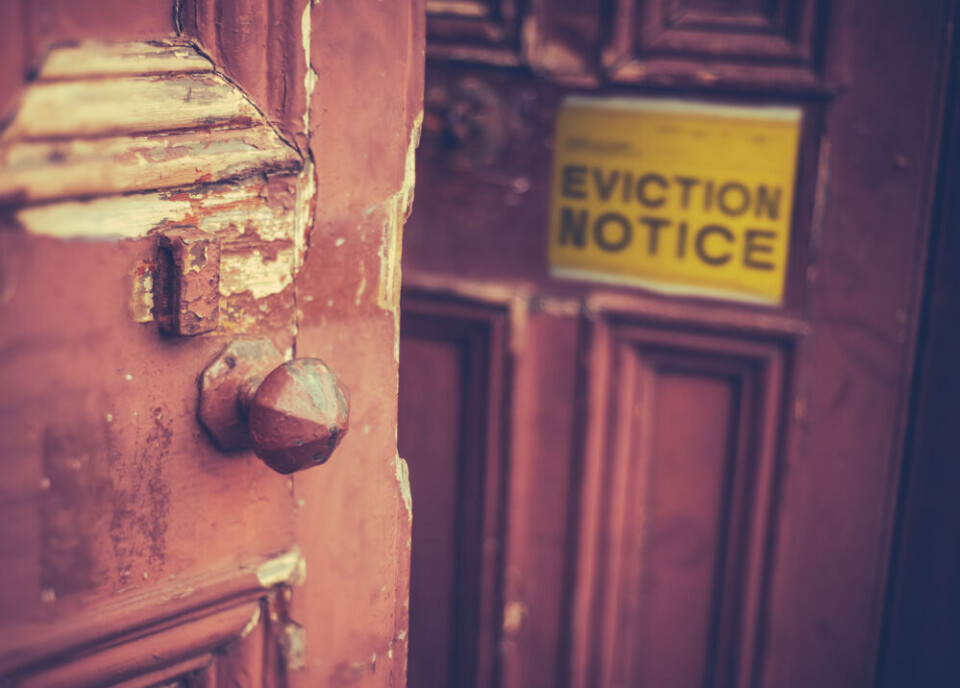-
French second-home visa issues raised in House of Lords
British people experience an "expensive and bureaucratic process" to continue living in France
-
More than 5,000 French communes use AI to identify poor rubbish sorting
Badly-sorted rubbish can cost millions so communes are turning to high-tech solutions
-
Tax on well-off retirees under consideration for 2026 budget
‘Nothing is off the table’ when it comes to finding €40 billion in savings says Labour Minister
France’s winter housing eviction truce to begin on November 1
The trêve hivernale makes it illegal for landlords to evict tenants during the winter months in most situations

France’s annual winter eviction truce, called la trêve hivernale, is to begin on Monday (November 1) and will remain in place until March 31 next year.
It makes it illegal for a landlord to evict a tenant during this period, including for reasons such as not paying rent.
The landlord can go to court if the rent is not paid, but the tenant will only be evicted at the end of the five months of winter. The eviction must then be carried out by a bailiff or the police, and not by the landlord.
This period also guarantees the tenant access to electricity, gas or water, even in case of unpaid bills. However, the rent and bills remain due by the tenant at the end of the period.
The truce does not prevent all evictions. For example, a person can still be evicted if ordered by a judge due to reasons linked to domestic violence or divorce.
Squatters, too, can also be evicted from homes during the truce period.
Squatting: One house occupied three times in three years
Squatters took over one house in Toulouse on October 19, but left peacefully on Wednesday (October 27), after being given 24 hours to leave.
It is the third time in as many years that the house, owned by 84-year-old Georges Dematis, has been occupied by squatters. Mr Dematis lives in a different house that is close to the one that was occupied.
The latest incident involved a group of around 15 “ultra-leftists”, according to Mr Dematis’ daughter, Marie-Ange Dematis. She told BFMTV that the first time it was Roma people and the second time refugees from Afghanistan.
The squatters in Mr Dematis’ house were made to leave due to an accelerated eviction procedure, a system put in place at the beginning of this year.
The homeowner must file a complaint at the police station before sending an eviction request to the prefect. The prefect then accepts (or rejects) the request within 48 hours and sends a formal notice to the squatters, as happened in the Toulouse case.
The illegal occupants then have 24 hours to leave the premises before the police intervene.
It should be noted that if the prefect refuses to initiate an eviction procedure, they must give reasons for their decision.
Out of 124 cases reported through this accelerated procedure, 95 have ended in evictions, which is just under 77%, figures from the Observatoire des Squats show. The other 29 cases are still being processed for various reasons, including missing paperwork or an ongoing search for alternative accommodation for the squatters.
The number of evictions in France is expected to reach around 8,000 by the end of 2021. This is far lower than the 30,000 that the government expected when the trêve hivernale ended on June 1 this year – it was extended due to the pandemic.
It is also significantly lower than in 2019, when there were 16,700 evictions.
The Abbé Pierre Foundation, an organisation in support of housing for disadvantaged people, has criticised the lack of rehousing solutions in France.
It states that 73% of evictions carried out in June 2021 were done so without offering the evicted tenants alternative housing. This figure dropped to 23% in July and August.
Related stories:
Landowner in France left with €40,000 costs after squatters evicted
What’s new for residents in France in April 2021
How to save money on your energy bills in France this winter
























